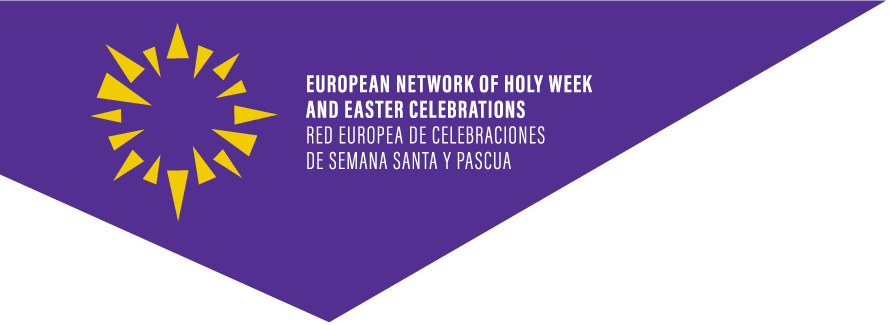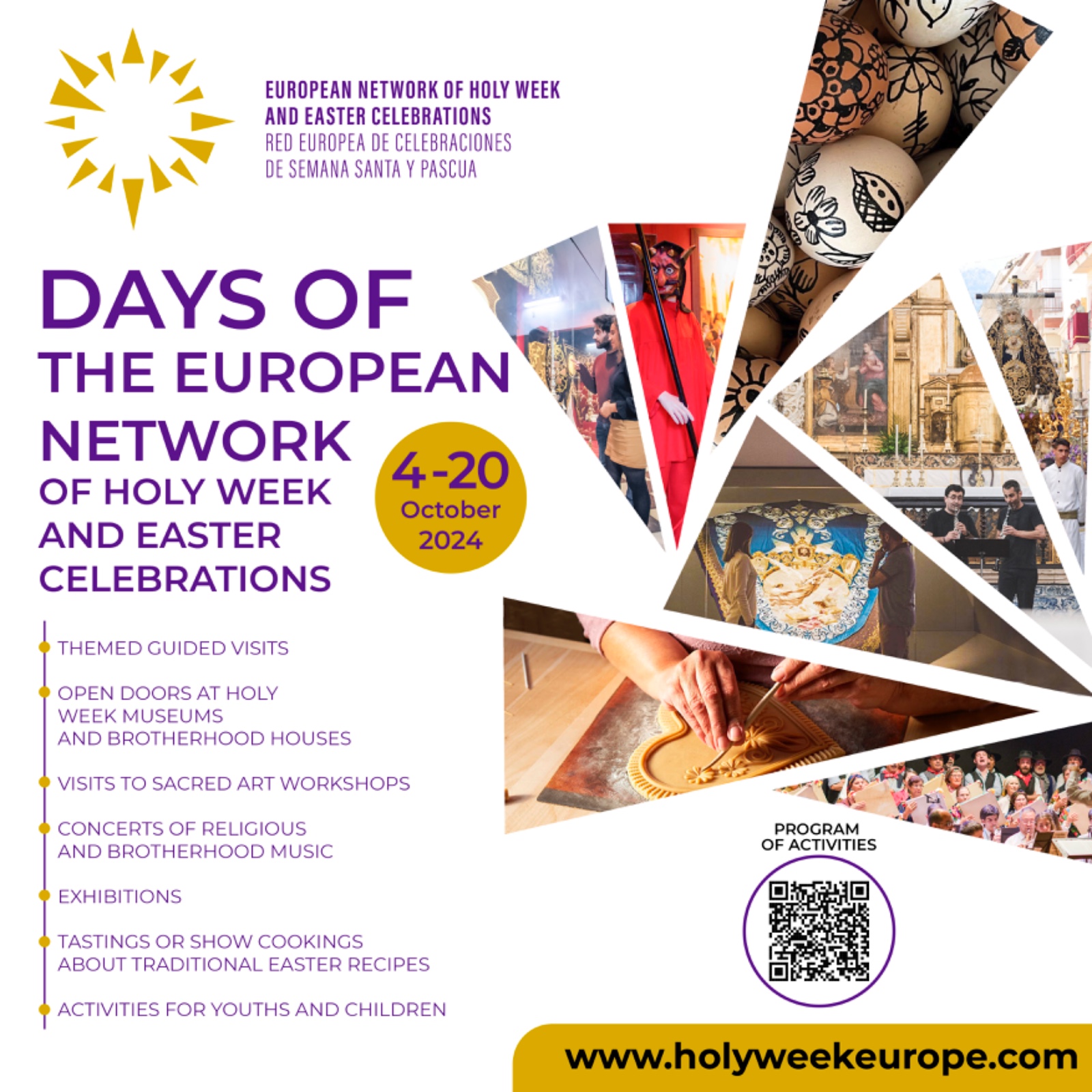
European Network of Holy Week and Easter Celebrations celebrates the Third European Meeting of Confraternities and Brotherhoods
- The event will be held, in virtual format, on May 30
- The round tables and presentations will focus on young groups in the Holy Week celebrations
- Brothers and specialists from some of the member countries of the European Network will participate: Portugal, Spain, Malta and Croatia
- Registration is free and will remain open until May 28
21.05.2024.- The European Network of Holy Week and Easter Celebrations will celebrate, on May 30, the Third European Meeting of Confraternities and Brotherhoods. This is an event that, in its two previous editions, has brought together more than two hundred attendees.
This forum is held with the aim of sharing, discussing and debating some aspects of the Holy Week and Easter celebrations, as well as laying new foundations to face, in a collaborative way, the future of our traditions, their conservation and sustainability. in the time. In this edition, the round tables will focus on the participation of young groups in the Holy Week celebrations.
Registration is free and open until May 28, the event will be held in virtual format and will include a total of six round tables and presentations, from 5:00 p.m. to 8:00 p.m. (Time Zone: UTC/GMT +02:00 Europe /Madrid).
The colloquiums will be composed of brothers and specialists from some of the member countries of the European Network: Portugal, Spain, Malta and Croatia.
The program will be guided and hosted by Brian Bonnici, Maltese radio and television presenter of programs related to local celebrations, especially those dedicated to Holy Week. He has participated in local and international seminars on religiosity and traditions, in addition to being the writer of three books on Holy Week in Malta and Holy Week in Sicily, along with several articles.
The coordinator of the Scientific Committee of the Network, the Portuguese Rui Ferreira, who has a degree in Philosophy from the Catholic University of Portugal and a master’s degree in Heritage and Cultural Tourism from the University of Minho, will also participate. He has extensive experience in curating exhibitions, coordinating publications and programming cultural activities, among others.
Programme III European Meeting of Confraternities and Brotherhoods
17.00 Opening and Welcome. Host: Brian Bonnicci (Malta)
The Importance of Youth Groups in Holy Week and Easter Celebrations. Rui Ferreira (Portugal), Historian and expert in Holy Week traditions, Coordinator of the Scientific Committee of the European Network of Holy Week and Easter Celebrations
17.30 The Role of Young People in Brotherhoods and Confraternities and their Impact on Current Holy Week and Easter Celebrations.
- Evolution in the organization and creation of costumes for extras who participate in biblical representations during Holy Week Processions in Braga (Portugal), in collaboration with brotherhoods and confraternities. Luis Ferreira
- Holy Week traditions in Malta from the perspective of youths. Christian Raggio
18.00 Involvement of young people in Musical Traditions of Holy Week and Easter
- Participation of young people from Idanha a Nova (Portugal) in the tradition of the Song of Entrustment of Souls that takes place every Friday of Lent. João Diogo Mendonça Couchinho
- Participation of young people in the “Za Krizen” procession and the Resounding Chants of the Passion on the island of Hvar (Croatia). Antonio Buj
18.30 Good Practices in Transmission Initiatives between Older and Young People
- The work between the “Youth Delegation” and the “Age Table” during Holy Week in Puente Genil (Spain). Alejandro Bascón Lozano
- The Meeting of Youth Groups in Orihuela (Spain) as a space for exchange between young people and veterans. Daniel Nieves Roldán
19.00 Final Thoughts from the Meeting. Rui Ferreira and Brian Bonicci
Questions and Answers
19.30 Closing and farewell
More information: www.encuentrodehermandades.eu
More about the European Network
The European Network of Holy Week and Easter Celebrations, created in 2019, is an organization that works to disseminate the traditions linked to Holy Week and Easter, thus safeguarding its rich heritage. Its fundamental objective is to contribute to a better knowledge of the values of this extensive legacy, alive in a large part of Europe. A legacy that combines notable local differences, with its wide diffusion as a common element of many regions. It is currently developing its certification as a Cultural Itinerary before the Council of Europe.



